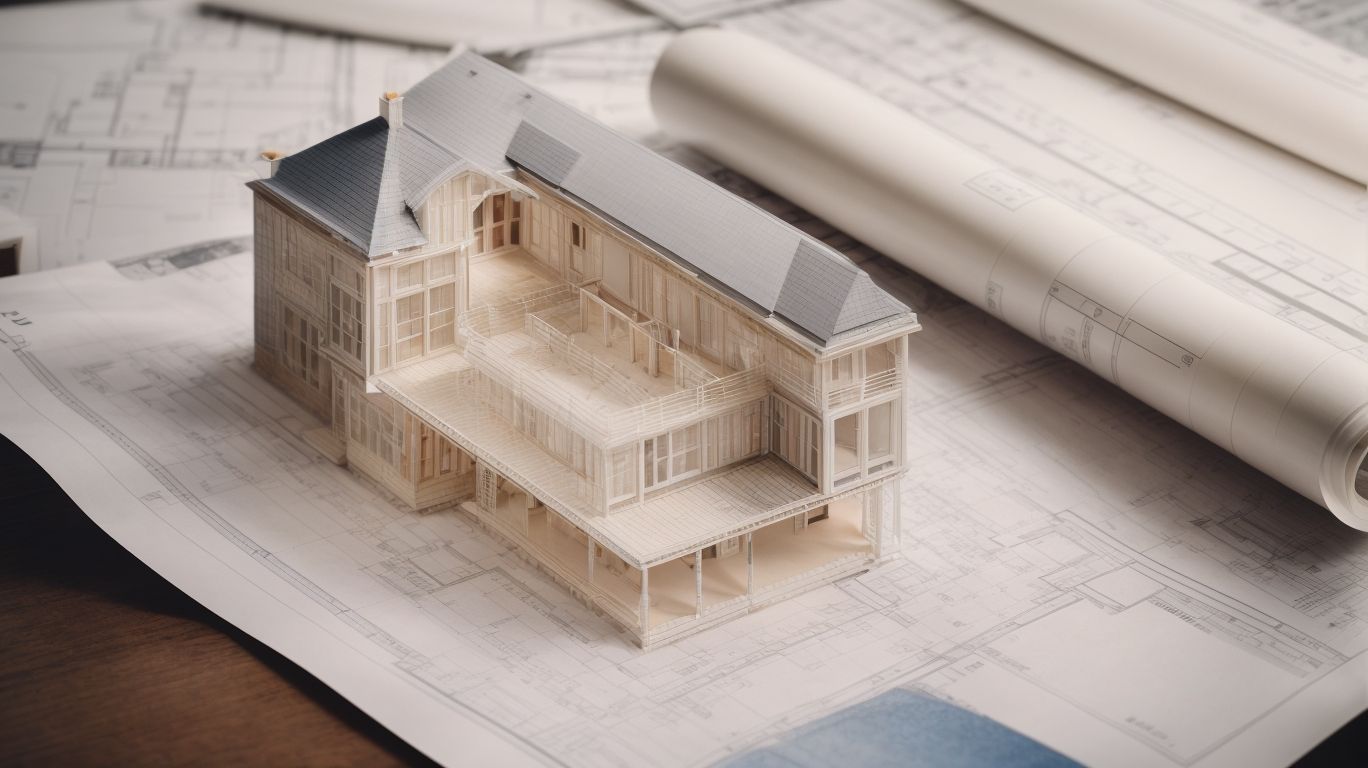
Navigating the Permit Process for Home Remodeling in SF
Are you planning to remodel your home in San Francisco? Navigating the permit process can be a daunting task, but understanding the requirements and steps involved can make the process much smoother.
In this article, we will discuss the various permits required for home remodeling in SF, including building, planning, demolition, electrical, plumbing, and mechanical permits. We will also provide a step-by-step guide on how to obtain these permits, common reasons for permit denial, and tips for a smooth permit process.
Whether you’re a homeowner or a contractor, this article will help you navigate the permit process with confidence.
What Permits Are Required for Home Remodeling in SF?
Navigating the permit process for home remodeling in San Francisco involves understanding the various permits required to ensure compliance with local building regulations and zoning guidelines.
Permits are essential for any home remodeling project in San Francisco. They ensure that the construction work meets safety standards and complies with the city’s regulations. The most common permits needed are building, electrical, plumbing, and mechanical permits. Each type corresponds to a specific aspect of the project, such as structural changes, electrical work, plumbing modifications, and HVAC installations.
Securing these permits is crucial to avoid potential fines, delays, or the need to undo completed work. Failure to obtain the necessary permits can significantly impact the timeline and budget of the remodeling project. So, make sure to obtain all required permits before starting any construction work.
What Is a Building Permit?
A building permit, issued by the San Francisco Building Department, is a crucial authorization that ensures construction projects adhere to established construction codes and regulations.
Building permits are crucial for ensuring regulatory compliance. They serve as a validation that a proposed construction plan meets safety, zoning, and environmental standards. The approval process involves a thorough review of architectural and structural plans to ensure they meet minimum requirements set by building codes.
These permits are essential for protecting both occupants and the surrounding community. Without proper permits, completing construction work can lead to legal complications and jeopardize the structural integrity and safety of the building.
What Is a Planning Permit?
A planning permit in San Francisco is essential for home renovation projects. It addresses zoning regulations and ensures that the proposed changes comply with the city’s land use and development policies.
Obtaining a planning permit is crucial in guiding the remodeling process. It ensures that structural alterations and additions align with the city’s vision for urban development. Additionally, a permit facilitates adherence to building codes and safety regulations, ensuring both aesthetic appeal and structural soundness.
Having a permit also provides homeowners with the confidence that their renovation plans meet the city’s regulations. This contributes to the overall integrity and sustainability of the neighborhood, making it a win-win situation for both the homeowners and the city.
What Is a Demolition Permit?
A demolition permit is required for residential construction projects in San Francisco. This involves a specific application process to obtain authorization for controlled demolition activities.
The process requires adhering to the city’s regulations and obtaining approval from the Building Department. Applicants must submit a detailed demolition plan, including the method of demolition, safety measures, and debris disposal. Documentation such as property ownership proof, contractor certification, and insurance coverage must be provided. Compliance with environmental regulations, such as asbestos and lead-based paint surveys, is also essential.
Once the application is submitted, an inspection may be required to ensure compliance with all stipulated requirements before the permit is issued.
What Is a Electrical Permit?
An electrical permit is a critical component of the remodeling process in SF, ensuring that electrical work meets safety standards and is performed by licensed contractors in accordance with construction documents.
This kind of permit is essential for maintaining the safety and integrity of the electrical systems within a structure. It also ensures that the work is carried out by professionals who are knowledgeable and competent in their field.
The permit process typically requires detailed documentation, including plans and specifications for the electrical project, to ensure that the work complies with building codes and regulations. By obtaining an electrical permit, homeowners can have confidence that their electrical work meets the necessary standards, promoting safety and reliability in their homes.
What Is a Plumbing Permit?
A plumbing permit is necessary for home remodeling projects in SF, placing responsibility on property owners to ensure compliance with building codes and adhere to the designated construction timeline.
This permit ensures that the plumbing work meets safety and regulatory standards, thereby safeguarding the property and its occupants.
Property owners are required to submit detailed plans and obtain approval before commencing any plumbing work, and failure to do so can lead to penalties and delays.
Adherence to building codes not only ensures safety but also contributes to the overall quality and longevity of the plumbing system.
Obtaining a plumbing permit can impact the construction timeline, so it is crucial for property owners to factor in the necessary approval processes when planning their remodeling projects.
What Is a Mechanical Permit?
A mechanical permit is essential for home renovation projects in SF. It emphasizes the importance of permit compliance to avoid potential violations and ensure the smooth progress of remodeling endeavors.
When it comes to mechanical work, such as HVAC installations or plumbing upgrades, it’s essential to follow regulations and obtain the necessary permits. Not doing so can result in severe legal and financial consequences, causing delays and complications in the renovation process.
To avoid these issues, homeowners should prioritize permit compliance. This means understanding the implications of permit violations and actively seeking permit approval. By doing so, they can mitigate the risk of facing penalties, project halts, or having to undo completed work, ensuring a smooth and successful home renovation journey.
How to Obtain Permits for Home Remodeling in SF?
Obtaining permits for home remodeling in San Francisco involves a series of structured steps, encompassing the application process, consultation with permitting services, and adherence to construction permitting guidelines.
Homeowners must determine the specific permits required for their remodeling project. This may include building, electrical, plumbing, or mechanical permits.
To begin the process, homeowners need to gather the necessary documentation. This may include architectural plans, engineer’s drawings, and structural calculations.
Once all documents are in order, applicants can proceed with the formal application process through the San Francisco Department of Building Inspection.
During this stage, it’s beneficial to engage with reputable permitting services. This can streamline the process and ensure compliance with local regulations.
Throughout the construction phase, it’s essential to adhere to the guidelines outlined in the permits. This will help avoid any penalties or delays.
Step 1: Determine the Type of Permit You Need
The first step in obtaining permits for home remodeling in SF is to determine the specific type of permit required, taking into account construction standards, potential restrictions, and seeking permit compliance assistance if needed.
This initial step is crucial as it ensures that the remodel complies with the city’s building regulations and standards. Understanding the potential restrictions that may apply to your project will help in avoiding any costly delays or non-compliance issues.
Seeking permit compliance assistance, when necessary, can streamline the process and provide valuable guidance for navigating the complexities of permit applications and approvals. By prioritizing these factors, homeowners can facilitate a smooth and successful remodeling project within the parameters of the law.
Step 2: Prepare Your Permit Application
The next step involves meticulous preparation of the permit application, addressing inspection requirements, understanding permit fees, and ensuring adherence to construction regulations outlined by the permitting authority in SF.
This process necessitates a comprehensive understanding of the specific inspection criteria relevant to the proposed construction project.
It is crucial to incorporate detailed plans and specifications while accounting for any additional documentation required for the application.
Identifying the applicable permit fees and ensuring the accuracy of financial calculations is essential to avoid delays.
Familiarity with the regulatory framework and building codes is indispensable for navigating the intricacies of the permit application process and ensuring compliance with the governing regulations.
Step 3: Submit Your Permit Application
Once the permit application is prepared, the subsequent step involves submitting it for review to obtain permit approval, facilitating the commencement of building renovation activities while ensuring compliance with potential permit renewal processes in SF.
This process typically involves a thorough examination by the relevant authorities, who assess the proposed renovation plans to determine if they align with local regulations and zoning laws.
Once approved, the permit allows for the lawful execution of the renovation work, ensuring that the building modifications adhere to safety and environmental standards. It’s crucial to remain mindful of any potential renewal requirements to avoid interruptions in the renovation process.
By understanding and adhering to the permit regulations, one can streamline the renovation process and achieve a successful outcome.
Step 4: Pay Permit Fees
Upon submission, the payment of permit fees becomes a crucial step, impacting the construction timeline and overall progress of residential construction projects in SF.
Permit fees are a crucial aspect of ensuring compliance with local regulations for residential construction. Timely payment of these fees expedites the approval process, avoiding unnecessary delays in the start of construction. This not only streamlines the timeline, but also maximizes resource utilization and minimizes the risk of disruptions.
By paying permit fees, you demonstrate a commitment to safety and quality standards, ultimately enhancing the integrity of the residential project.
Step 5: Wait for Permit Approval
The final step involves waiting for permit approval, marking the culmination of the application process and addressing any pending inspection requirements related to the building permit application in SF.
During this waiting period, it is crucial to ensure that all documentation is in order and that any outstanding issues have been addressed.
Permit approval signifies that the proposed construction or renovation project complies with local regulations and standards, promoting safety and structural integrity. This stage also allows the authorities to conduct any necessary inspections to verify that the construction plans align with the building codes and requirements.
Waiting for permit approval demonstrates a commitment to adhering to legal and safety protocols, ultimately contributing to the smooth progression of the construction process.
What Are the Common Reasons for Permit Denial?
Understanding the common reasons for permit denial in San Francisco is essential, encompassing factors related to zoning regulations and permit compliance that may lead to the rejection of remodeling permit applications.
Obtaining remodeling permits requires strict adherence to zoning regulations and full compliance with permit requirements. Violating specified guidelines, such as property line setbacks, height restrictions, or land use limitations, can lead to permit denial. Common contributing factors include incomplete or inaccurate applications, insufficient documentation, and unresolved building code violations. Familiarizing oneself with these aspects can aid in preparing thorough and compliant permit submissions, minimizing the risk of denial.
Tips for a Smooth Permit Process in SF
To facilitate a smooth permit process in San Francisco, proactive adherence to construction standards, guidance for home improvement projects, and seeking permit compliance assistance are pivotal for successful remodeling endeavors.
Understanding the specific regulations and codes for construction within San Francisco is essential.
Utilizing the expertise of architects or contractors familiar with local building requirements can streamline the approval process.
Being well-informed about the necessary documentation and ensuring all applications are complete and accurate will contribute to smoother permit approval.
It’s also beneficial to seek permit compliance assistance from professional services or consultants who can guide through the intricacies of the permitting system, ensuring adherence to all regulations and avoiding potential delays or complications.




No Comments